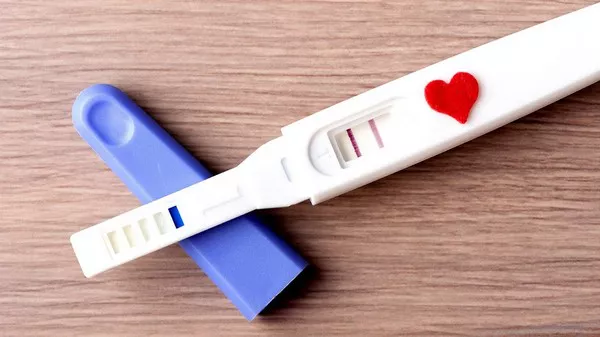The possibility of being pregnant can be both exciting and nerve-wracking for many women, especially if they have missed their menstrual period. Home pregnancy tests offer a convenient and private way to confirm pregnancy, but there may be uncertainty about when to take the test for accurate results. In this comprehensive article, we explore the sensitivity and accuracy of pregnancy tests, specifically focusing on whether taking a test 5 days after a missed period can provide reliable results.
Understanding Home Pregnancy Tests
Home pregnancy tests are designed to detect the presence of human chorionic gonadotropin (hCG), a hormone produced by the placenta shortly after conception. The level of hCG in a woman’s body increases rapidly during early pregnancy, doubling approximately every 48 to 72 hours. Most home pregnancy tests are highly sensitive and can detect hCG levels as low as 25 mIU/ml.
When taken correctly, home pregnancy tests can provide accurate results, but the timing of the test is crucial for obtaining reliable outcomes.
The Timing of Home Pregnancy Tests
The accuracy of a home pregnancy test depends on when it is taken relative to a missed period. For most women, a missed period is an early indicator of pregnancy. However, it’s important to remember that the timing of ovulation and subsequent implantation can vary from woman to woman, affecting the timing of a positive test result.
Most home pregnancy tests are designed to detect hCG levels in urine, which typically becomes detectable around 10 to 14 days after conception. Since the average menstrual cycle is 28 days, testing 5 days after a missed period falls within this window. However, it may be too early for some women to obtain a positive result.
Factors Affecting Test Sensitivity
The sensitivity of a home pregnancy test plays a crucial role in determining whether it will work 5 days after a missed period. Some factors that can influence test sensitivity include:
1. hCG Levels: The level of hCG in a woman’s body varies depending on factors such as the time of implantation and the individual’s natural hCG production rate. If a woman’s hCG levels are still relatively low at 5 days after a missed period, the test may not detect pregnancy.
2. Ovulation and Implantation: The timing of ovulation and subsequent implantation can vary, impacting when hCG levels become detectable in urine. Implantation typically occurs 6 to 12 days after ovulation.
3. Test Brand and Sensitivity: Different home pregnancy test brands may have varying levels of sensitivity. Some tests are more sensitive and can detect lower hCG levels, while others require higher levels for a positive result.
4. Individual Variation: Each woman’s body and pregnancy experience are unique. Some women may have higher or lower hCG levels than others at the same stage of pregnancy.
Increasing Test Accuracy
To increase the accuracy of a home pregnancy test taken 5 days after a missed period, consider the following tips:
1. Wait a Few More Days: If the test is negative at 5 days after a missed period, wait a few more days and retest. hCG levels increase rapidly during early pregnancy, so waiting a few days can make a significant difference in test results.
2. Use First-Morning Urine: The first-morning urine tends to have higher concentrations of hCG, which can improve the chances of a positive test result.
3. Follow Instructions Carefully: Properly follow the instructions provided with the home pregnancy test to ensure accurate results. Using the test at the appropriate time and following the recommended wait time is crucial for reliable outcomes.
4. Test Again if Needed: If there is still uncertainty about pregnancy status after retesting, consider scheduling a blood test with a healthcare professional for a more accurate and definitive result.
Confirming Pregnancy with Medical Assistance
While home pregnancy tests are highly accurate when used correctly, some women may still prefer the reassurance of a medical assessment. A healthcare professional can perform a blood test, which can detect lower levels of hCG and provide more precise measurements.
Blood tests, specifically quantitative hCG tests, can measure the exact amount of hCG in the blood, allowing for early detection of pregnancy. This method is especially useful for women who are trying to conceive and want to monitor hCG levels during early pregnancy.
Conclusion
The accuracy of a home pregnancy test taken 5 days after a missed period depends on various factors, including the individual’s hCG levels and the test’s sensitivity. While some women may receive accurate results at this stage, others may need to wait a few more days or consult a healthcare professional for a blood test to confirm pregnancy definitively. It’s important to remember that every woman’s pregnancy experience is unique, and timing can vary. Understanding the factors that affect test sensitivity and following test instructions carefully can help ensure reliable results and provide clarity during this crucial time of anticipation.


